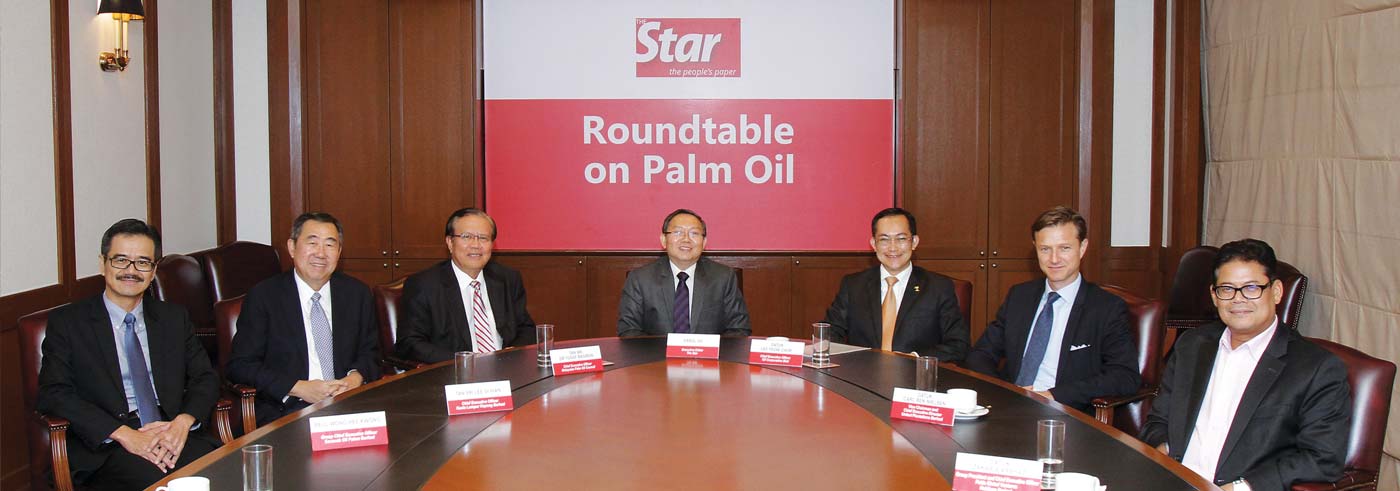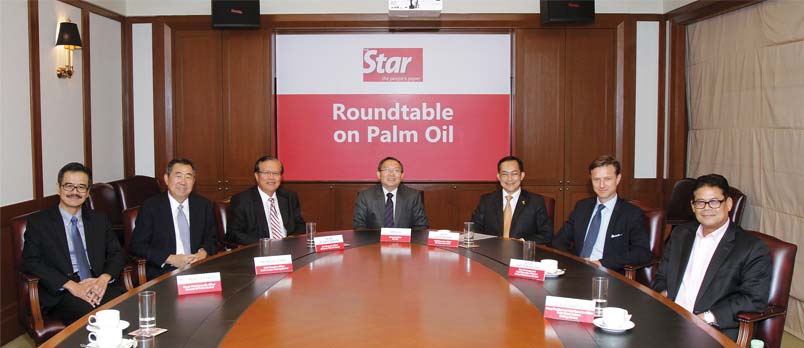



From an unknown to a global commodity
February, 2017 in Issue 1 - 2017, Markets
At The Star’s fifth annual Roundtable Talk on Palm Oil, held in November 2016 in Kuala Lumpur, industry leaders reflected on the transformation of the sector, poised as it then was on the threshold of marking its centennial of commercial cultivation of oil palm in Malaysia.
They reviewed how the industry has lifted families out of poverty and sparked the development of rural areas surrounding oil palm plantations. They spoke about continuing and emerging issues confronting progress, including the critical shortage of workers, and shared their views on whether Malaysian Sustainable Palm Oil (MSPO) certification should be made mandatory.
Moderated by The Star’s Executive Editor Errol Oh, the discussion saw the participation of:
Excerpts follow from a selection of topics raised during the session.
Achievements and contributions
Tan Sri Dr Yusof said it is worth celebrating the rapid expansion of the production and benefits of palm oil:
“We have pushed palm oil to become a globally-recognised commodity. In the early years, palm oil was used in the production of soap; and in the steel processing industry, to prevent the rusting of steel plates. In some countries such as Iran, it was considered inedible oil. When the Palm Oil Research Institute of Malaysia was established in 1979, more intensive research was conducted to study the food potential of palm oil.
Through our investments in research, we were able to characterise and popularise palm oil into what is now recognised as a major source of food oil, cooking oil and raw material for the production of cooking fats, margarine and shortenings. The applications have further expanded into the oleochemical and biodiesel sectors.
When I began my career in this industry in 1980, world palm oil production was about 3 million tonnes – 2.5 million tonnes from Malaysia and half a million tonnes from Indonesia. Today, it is over 60 million tonnes – a 20-fold increase – and all this happened within 35 years. Markets have been developed to consume almost all this oil. Producers also enjoy better prices in addition to the higher volume, through global market expansion of palm oil.
Palm oil is a major contributor to food supply, making up almost 30% of global oils and fats supply of about 220 million tonnes. Today, it is the most dominant oil and its acceptance is global. Almost every country imports or uses it due to its competitive pricing and versatility. The world population of seven billion is highly dependent on the availability of affordable palm oil.
I would say this is a major achievement of the industry. It started as an insignificant, unknown commodity, and we have taken it to the global stage. It is now a daily commodity that meets the necessities of life and feeds the world population.
Dato’ Zakaria spoke from the perspective of smallholders, based on his experiences in growing up in a settlement established by the Federal Land Development Authority (FELDA):
“I was born in the 1950s in Jelebu, a very remote area in Negeri Sembilan. My family and I moved to FELDA Palong in the 1970s. We came from a poor family, and I have nine siblings. We went as settlers, developed the land we were given and improved our livelihood.
There are two things I can share. The first is about the role of the oil palm industry in poverty eradication. [FELDA] gave us about 12 acres [sic] of land, and we developed it. Of course at the beginning we struggled, earning very little. In the 1970s, we only earned about RM75 per family each month. Today, we are much better off. So to me, one of the major contributions of palm oil is how it has lifted so many families out of poverty.
[The second is that] the government developed Palong and areas [around] other settlements. Palong was a jungle in the early days, but now during Hari Raya you can even see a traffic jam there. There are so many cars – each family has two or three cars.”
Paul Wong noted that oil palm cultivation in Sarawak only began about 50 years ago, but that the rate of development has been remarkable:
“In 1968, the Commonwealth Development Corp took up a joint venture with the Sarawak government to pioneer the development of oil palm in the state. At the time, people in Sarawak were still involved in shifting cultivation.
Look at us today – we have planted 1.4 million ha; production last year was about 3.7 million tonnes. We can see the transformation from people relying on shifting cultivation and [products] from the jungle, to many of them being employed in the plantation sector today.
At the same time, we have a lot of smallholders. They own a parcel of native land, began to develop it, and now they are their own boss. Life has been transformed. Oil palm has brought them to much greater heights.
With the increase in world population and the rising demand for [edible] oil, just imagine if we didn’t have palm oil. How much more land would need to be cleared just to feed the world population? Palm oil is actually saving the world in terms of the environment.”